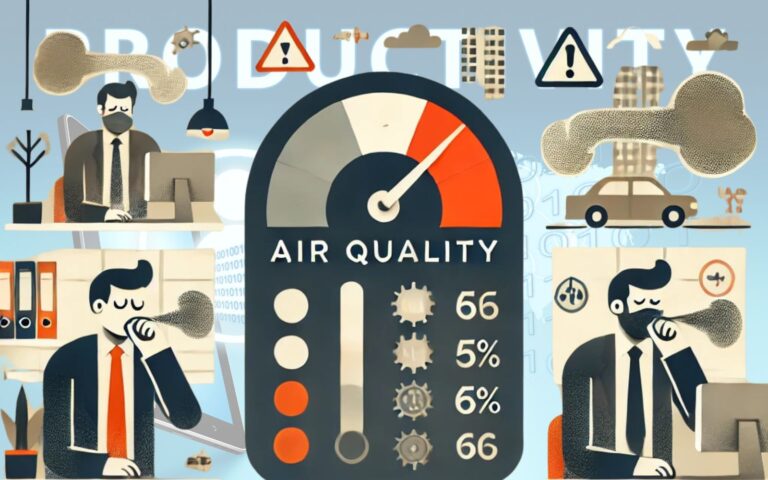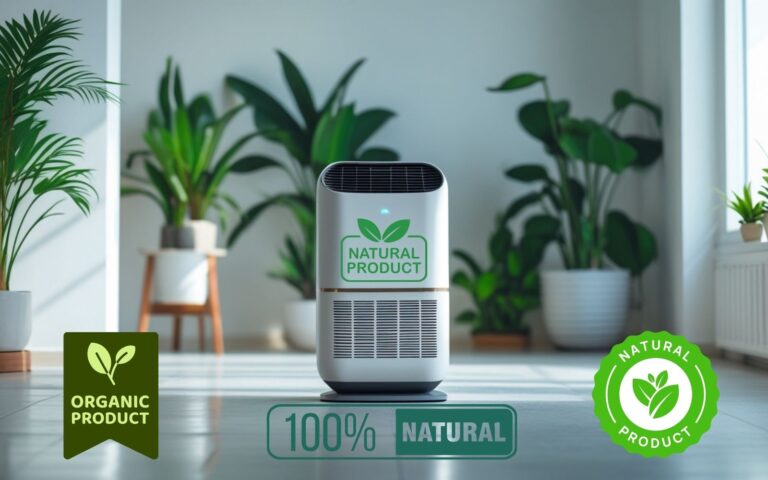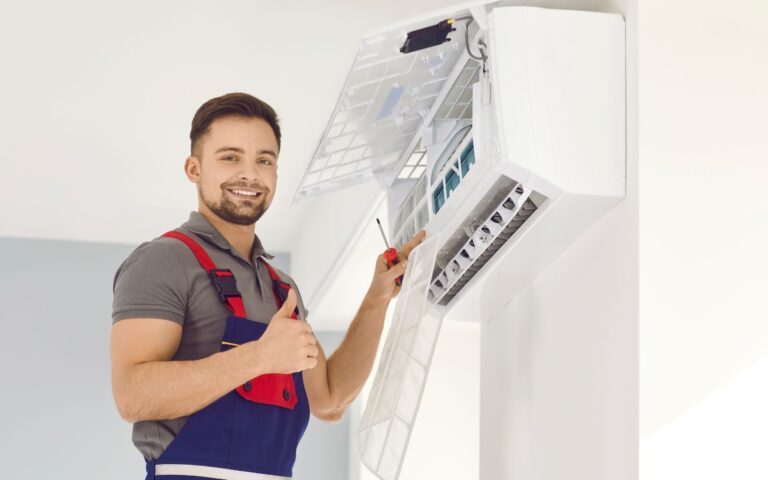The Importance of Air Ventilation in Offices: A Breath of Fresh Air for Better World

Have you ever wondered why the air in your office feels stale, humid, and stuffy after a few hours? Poor ventilation is often the culprit.
Whether it’s the lack of fresh air or stagnant air circulating through the ventilation systems, the air quality in office spaces can affect everything from employee health to productivity. That’s why focusing on air ventilation in offices is crucial.
This article will cover why having adequate ventilation is essential for a healthy, productive work environment and the importance of air ventilation in offices.
You’ll learn how good air circulation improves health, reduces energy costs, and enhances comfort. By the end, you’ll know what steps to take to improve the indoor air quality in your office.
Key Takeaways: The Importance of Air Ventilation
- Good ventilation reduces the spread of germs, keeps the office healthier, and minimizes sick building syndrome risks.
- Proper air flow boosts employee focus and productivity.
- Simple strategies like opening windows and maintaining HVAC systems can significantly improve air quality.
- Investing in high-quality ventilation systems can help save money in the long run.
Why Air Ventilation in Offices Matters

The air quality in an enclosed office space quickly deteriorates without proper ventilation. The buildup of indoor air pollutants like dust, chemicals, and recirculated air can lead to health issues and decrease employee productivity.
1. Health and Wellness of Employees

Poor ventilation traps contaminants, leading to indoor pollution that can harm employees. When air pollutants like dust, bacteria, and mold build-up, they can cause allergies, asthma, and other respiratory conditions.
Over time, this contributes to more sick days as employees struggle with recurring health problems caused by inadequate ventilation.
Improving ventilation can help:
- Reduce the spread of airborne germs.
- Minimize off-gassing from office materials like furniture.
- Keep humidity levels balanced to prevent mold growth.
For additional benefits, consider introducing indoor plants that purify air as part of your office decor to naturally combat air pollutants. This is why clean air and proper air supply are essential in the workplace.
2. Boosting Employee Productivity

Did you know that the air you breathe can impact how well you work? Employees often complain about headaches, fatigue, and difficulty concentrating in offices with poor ventilation.
This happens because stale air increases carbon dioxide, making it harder for employees to stay focused. Ensuring proper airflow can help employees feel more energized and alert.
Benefits of good indoor air quality include:
- Improved concentration and mental clarity.
- Reduced headaches and fatigue.
- A more comfortable work environment helps to prevent that dreaded afternoon slump.
Moreover, workplaces with eco-friendly office setups often incorporate strategies to enhance ventilation and overall air quality, boosting employee productivity.
3. Preventing Sick Building Syndrome

Ever heard of sick building syndrome? It’s when building occupants experience health problems directly linked to time spent in poorly ventilated spaces. Symptoms include headaches, dizziness, nausea, and irritated eyes or throat.
Employers can significantly reduce the risk of sick building syndrome by ensuring proper ventilation and providing everyone with a safer, healthier environment.
How to Improve Air Ventilation in Your Office

Ready to improve your office’s air quality? Here are some practical ways to ensure your office gets the fresh air it needs:
1. Use Natural Ventilation
Use natural ventilation by opening windows and doors to let in outdoor air when possible. This is the easiest and most cost-effective way to improve air circulation and bring fresh air. It helps prevent the buildup of stagnant air and lowers indoor air pollutants.
2. Upgrade or Maintain Your HVAC System
A well-functioning HVAC system (Heating, Ventilation, and Air Conditioning) is crucial for keeping air clean and circulated. Regularly maintaining your system can ensure it’s working efficiently, keeping the office’s indoor air quality high. Make sure to:
- Change HEPA filters regularly to remove small particles.
- Clean the system to prevent dust buildup.
- Check the system’s ventilation capacity to ensure it’s suitable for the size of your office space.
If your HVAC system is outdated, upgrading to a more energy-efficient model can significantly enhance air quality while reducing energy costs. Green workplaces often showcase the benefits of green buildings on air quality by incorporating advanced ventilation systems designed for optimal performance and sustainability.
3. Use Mechanical Ventilation
In cases where natural ventilation isn’t enough, mechanical systems can help. Installing mechanical ventilation systems ensures that recirculated air doesn’t become stale.
Air conditioners, for example, can help maintain a comfortable work environment while filtering the air. However, they must be regularly serviced to avoid spreading air pollutants.
4. Install Air Purifiers
Air purifiers with HEPA filters can remove small particles, including dust, bacteria, and viruses. These devices are especially useful in offices with limited natural ventilation or poor outdoor air quality.
5. Introduce Plants
Indoor plants are not just for decoration. Certain types of plants, like snake plants or spider plants, act as natural air purifiers, absorbing toxins and allergens. Adding plants to your office can help create a healthier environment by improving air quality.
Summary
Understanding the importance of air ventilation in offices is essential for maintaining a healthy and productive workplace. Poor air circulation leads to stale air, the buildup of air pollutants, and even health issues like sick building syndrome.
Improved ventilation can significantly enhance employee productivity and reduce sick days, whether through natural ventilation, mechanical ventilation, or maintaining your HVAC system. Small changes like adding plants or opening windows can go a long way in keeping your office space fresh and comfortable.
Frequently Asked Questions
How Does Poor Ventilation Affect Employee Health?
Poor ventilation systems trap air pollutants and germs, increasing employees’ risk of respiratory illnesses, headaches, and fatigue.
How Can I Improve Air Ventilation in My Office?
Simple actions like opening windows, maintaining your HVAC system, and using air purifiers can significantly improve the air quality in your office.
What Is Sick Building Syndrome?
Sick building syndrome refers to health issues experienced by building occupants due to poor ventilation. Symptoms include headaches, nausea, and fatigue.
Why Are HVAC Systems Important for Office Ventilation?
A properly maintained HVAC system ensures healthy air circulation, filters out small particles and air pollutants, and helps regulate the temperature, making the office environment healthier and more comfortable.
Can Plants Improve Indoor Air Quality?
Yes, certain indoor plants help remove toxins from the air, improving indoor air quality and providing a fresher, more pleasant office environment.






Your insights shine like constellations — guiding the reader across the sky of thought.
Thank a ton for your comment.